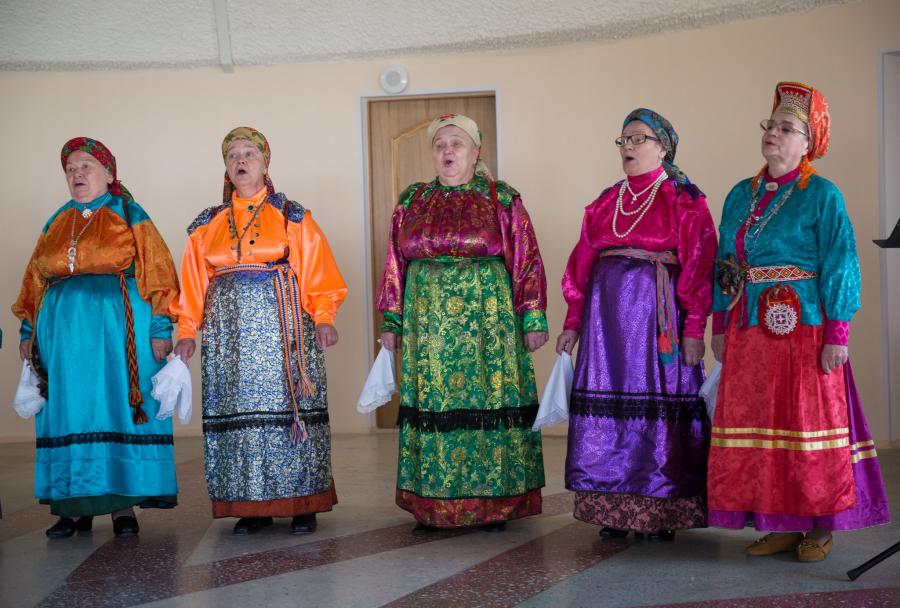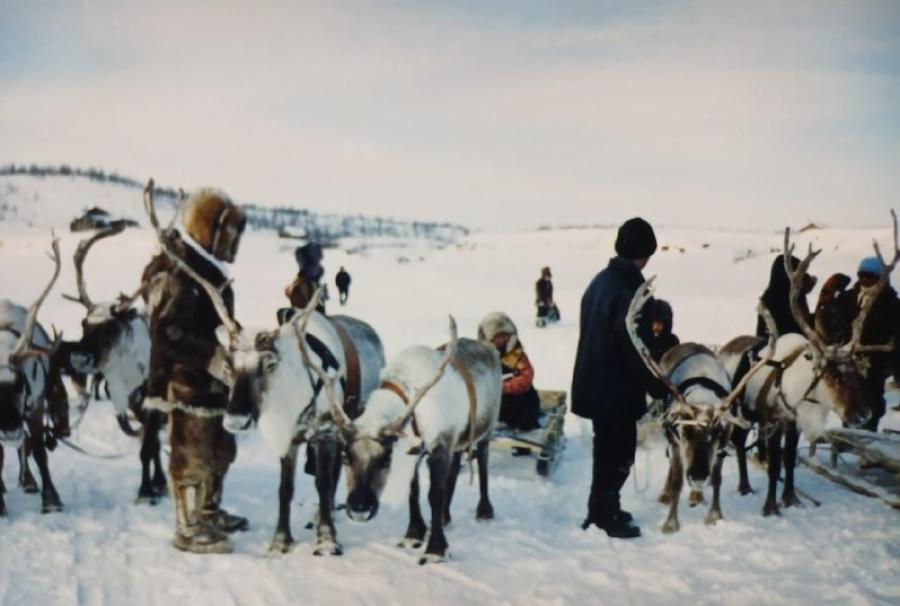Numerous plans to build natural gas and oil pipelines across Transbaikalia have been proposed over the past several years, spurred by regional, national, and international interest in developing Siberia's natural resources. Although these proposals represent millions of dollars just in planning and surveying pipeline routes, little effort has been made to inform Native Siberians about the costs (environmental, social, or otherwise) and benefits of such development, or their role, rights, and authority in decision-making over these critical resource-development initiatives.
During August, September, and October 2002, the Totem Peoples Preservation Project (a Cultural Survival Special Project) and the Evenki Youth Group GIEVUN (an Evenki word meaning "youth") collaborated to address this problem by initiating public education workshops in various Evenki communities in northern areas of the Republic of Buryatia, where some 2,000 Evenki live. These workshops focused on empowering small, rural, and remote Native Evenki communities through the recognition, advancement, and realization of Russia's new federal law On Territories of Traditional Natural Resource Use of the Indigenous Small-Numbered Peoples of the North, Siberia, and the Far East of the Russian Federation.
In the small Evenki community of Dyren in the Kurumkhan Region of Buryatia, many residents participated in the initial self-empowerment workshops that focused on understanding the impacts of the pipeline proposals and the federal law on traditional territories. GIEVUN, made up of more than 20 college-aged Evenki students, facilitated the start-up and the implementation of these first seminars. Attended by teachers, representatives of local Evenki cultural centers, local administration officials, and other citizens, these meetings were the first opportunity many residents had to discuss the pipeline proposals in an open forum, to identify their own proposals addressing their rights, and to air responses to the proposed ingress of the oil and gas pipelines.
The public meetings educated Evenki citizens about the planned routes of the various fuel pipelines, discussed legal options for Evenki groups who wanted a say directly with government and corporate leaders, and helped establish the first nonprofit working group to look at these issues and to act on the federal laws that could clearly delineate and protect Evenki Native territories. Evenki youth prepared reports on a range of topics regarding the pipelines, regional economics, and federal law. These reports were distributed before the meetings via the internet, by hand, and through the post.
Among the results of the Dyren workshops:
Fifty Evenk from many walks of life attended the workshops, a good turnout for a remote village like Dyren.
A lack of awareness of Native rights, the parameters of the pipeline proposals, or laws governing identification and protection of traditional properties was apparent. This lack of knowledge can be attributed to the remoteness of the village and the below-average education level of the townsfolk. Despite the availability of information materials in advance of the workshop, many citizens were not well prepared. But the high level of interest and concern was demonstrated by the number of participants and by their comments.
Evenki citizens found the federal law regarding territories of traditional nature use confusing, and the process for implementation difficult to understand or even realize. Better understanding of the legal implementation of the laws protecting Native cultures and their properties is needed on all levels.
GIEVUN members were required to translate reports on the proposed oil and natural gas pipelines into the Evenki language. Most Russian laws or decrees do not get translated or interpreted adequately—if at all—for the Native population.
Citizens expressed concern over living conditions in northern Buryatia, including economic difficulties, poor roads and other transportation limitations, and poor infrastructure maintenance. They were also concerned about legal and illegal timber cutting in the region, illegal poaching of wild game that reduces critical animal resources, and other problems.
GIEVUN found that role-playing in a game format encouraged open discussion among citizens who typically do not have the opportunity to speak out or participate in public workshops.
Evenki in northern Buryatia and the neighboring regions of Irkutsk Oblast' and Chita want a genuine and equitable role in decisions regarding environmental and economic developments impacting their ancestral lands and future. While GIEVUN is made up entirely of Evenki youth, many of whom are college-aged (though only a small percentage have had the chance to attend college), the club is seeking collaborative relationships with international organizations and with neighboring Small-Numbered Peoples of the North such as the Soyots of the eastern Sayan Mountains. Partnerships, legal representation, and funding to facilitate community empowerment and leadership training are greatly needed.
These Native youth, however, are not going to wait around for partnerships in order to act. They are already planning to advance interaction with Moscow's Russian Association of Indigenous Peoples of the North (RAIPON), as well as with the Moscow-based indigenous rights organization Rodnik, to gain access to analytical reports on the pipeline construction and agreements. They also want to use such collaboration to create an Evenki working group to oversee processes and actions associated with resource development and to hold further public seminars and workshops.
Some of the smaller, more remote Evenki communities in northern Buryatia and Irkutsk Oblast' are renewing their ancient ties to their traditional landscape through time-honored activities such as reindeer breeding, fishing, and hunting. Still, they are always struggling financially and their adaptation to the market economy is slow-paced, especially when compared to politically and economically powerful international corporations. Where such outside forces seek to generate wealth from exploitation of natural resources requiring transportation routes through Evenki ancestral lands, the Evenki people deserve and are seeking, through the new initiatives of GIEVEN and other efforts, a truly equitable say and a realized role in the preservation of their Native culture, enhancement of their local economies, and management of their ancestral taiga homelands.
Zhargal Dampilon is president of GIEVUN. Daniel Plumley is director and founder of the Totem Peoples’ Preservation Project.
The Totem Peoples’ Preservation Project seeks tax-deductible donations to continue further empowerment funding for the GIEVUN youth group and Evenki peoples of Buryatia.
References and further reading
Dampilon, Zhargal. (2002, November). Report on the Completion of Grant for the Evenk Youth Group GIEVUN. White paper submitted to the Totem Project, a Cultural Survival, Special Project.
Plumley, Daniel R. (2002, July). Private Field Notes. 2002 Totem Project Expedition to Tuva, Buryatia, and Mongolia.
Mote, Victor L. (1998). Siberia - Worlds Apart. Westview Series on the Post-Soviet Republics. Boulder, Colorado: Westview Press.



